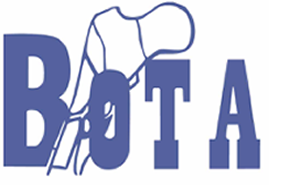November 29th 2025

WHO ARE WE?
The Belgian Orthopaedic Trauma Association (BOTA) is the national lead partner for medical doctors with a special interest in the musculoskeletal trauma-care.
The Belgian Orthopaedic Trauma Association has been founded in the summer of 1990. The founders were René Verdonk (Gent), Peter Reynders (Leuven) and Jan Vanmelkebeek (Antwerpen).
The current president is F. Carlier and vice-president is B. Molenaers.
Our purpose is still promotion of an evidenced based treatment plan for orthopaedic trauma. Every year we organise a national congres but we also organise casuistic meeting where every-one can present there ‘case-reports’ with a peer review. These case-reports can be very interesting, also for residents.
NEWSFLASH

The International Orthopaedic Trauma Association will organise it's 2nd Triennial Meeting in October 21-25, 2025 in Guadalajara, Mexico.
SAVE the Date

ESTES Aachen from 13 to 15 April is approaching, a moment where BOTA will be in the international spotlight and where you will guide us through the social events that typically accompany such a congress.
BOTA CASUISTIC MEETING
The aim of our Casuistic Joint Meetings is: "Teaching the management of orthopaedic trauma through case-discussions in Belgium"
Membership
Interested in becoming a member? Join you Orthopaedic colleagues specialised in Trauma.
We allow senior and junior members. Join us as a memebre and fill out the form.
MEMBER ZONE
BOTA is member of


© Semico Group
